Wild
 for sexual content, nudity, drug use, and language.
for sexual content, nudity, drug use, and language.
Reviewed by: Halyna Barannik
CONTRIBUTOR
| Moral Rating: | Extremely Offensive |
| Moviemaking Quality: |
|
| Primary Audience: | Adults |
| Genre: | Biography Drama |
| Length: | 1 hr. 55 min. |
| Year of Release: | 2014 |
| USA Release: |
December 5, 2014 (select—21 theaters) December 19, 2014 (wide—1,061 theaters) December 25, 2014 (1,285 theaters) January 2, 2015 (1,361 theaters) DVD: March 31, 2015 |
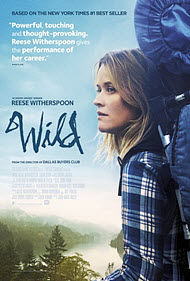

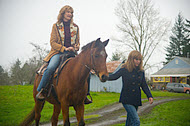
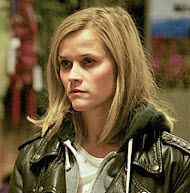
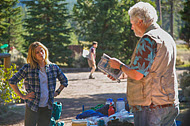
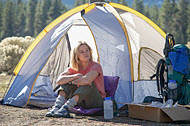
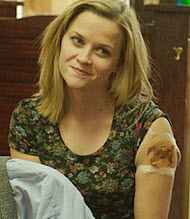
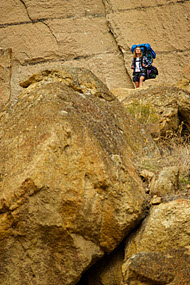
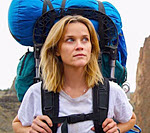
living life without God or morality
identity crisis
searching for a new beginning to your life
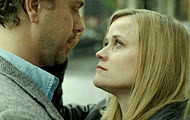
abusive husbands
drug addiction—heroin
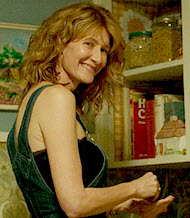
death of mother
dealing with grief
Where did CANCER come from? Answer
How did bad things come about? Answer
Why does God allow innocent people to suffer? Answer
What about the issue of suffering? Doesn’t this prove that there is no God and that we are on our own? Answer
Does God feel our pain? Answer
What kind of world would you create? Answer

PURITY—Should I save sex for marriage? Answer
lust and fornication in the Bible
How do I know what is right from wrong? Answer
How can I decide whether a particular activity is wrong? Answer
Are we living in a moral Stone Age? Answer
NUDITY—Why are humans supposed to wear clothes? Answer
| Featuring |
|---|
|
Reese Witherspoon … Cheryl Laura Dern … Bobbi Thomas Sadoski … Paul Keene McRae … Leif Michiel Huisman … Jonathan W. Earl Brown … Frank Gaby Hoffmann … Aimee Kevin Rankin … Greg See all » |
| Director |
| Jean-Marc Vallée — “Dallas Buyers Club” (2013) |
| Producer |
|
Fox Searchlight Pictures Pacific Standard |
| Distributor |
 Fox Searchlight Pictures, a sister company of 20th Century Fox, a division of The Walt Disney Company |
Here’s what the distributor says about their film: “In ‘Wild,’ director Jean-Marc Vallee (‘Dallas Buyers Club’), Academy Award winner Reese Witherspoon (‘Walk the Line’) and Academy Award nominated screenwriter Nick Hornby (‘An Education’) bring bestselling author Cheryl Strayed’s extraordinary adventure to the screen. After years of reckless behavior, a heroin addiction and the destruction of her marriage, Strayed makes a rash decision. Haunted by memories of her mother Bobbi (Academy Award nominee Laura Dern) and with absolutely no experience, she sets out to hike more than a thousand miles on the Pacific Crest Trail all on her own. ‘Wild’ powerfully reveals her terrors and pleasures—as she forges ahead on a journey that maddens, strengthens, and ultimately heals her.”
The movie, “Wild,” starring Reese Witherspoon, has been highly rated by secular movie reviewers. However, upon seeing this film, I can tell you that it has a lot to avoid. There is quite a bit of profanity throughout the movie, lots of explicit sexuality and nudity.
The story is about a woman who spirals downward into an immoral lifestyle and then tries to set herself straight by walking a difficult hike along the pacific coastal territories. The plot was interesting enough and had enough suspense to hold my attention, as I watched a woman go by herself on a very strenuous and dangerous journey through the wilderness.
I cannot recommend this movie to Christian moviegoers because there are no redeeming factors to the story. The acting is fine, but not exceptional. The screenplay based on the true story is adequate. The end result of this movie is a sad, depressing tale of a life without God or morality.
Violence: Moderate / Profanity: Extreme—“J*sus f***ing Chr*st,” “G*d is a ruthless b*tch,” “Jesus” (2), “God” (5), hell (5), “damn,” f-words (40+), s-words (12), “*ss” (3), “*ss-hole” (3), “cr*p” (2), “b*tch,” etc. / Sex/Nudity: Extreme
Cheryl Strayed, the woman portrayed in “Wild,” is a long-time feminist activist. Oprah Winfrey has heavily promoted her book, Wild: From Lost to Found on the Pacific Crest Trail, on which the movie is based.
How good (really) is your “best self,” without God? Is your “best self” good enough to get to Heaven? Answer
How good is good enough? Answer
What is sin? and the fall of man?
See list of Relevant Issues—questions-and-answers.


Maybe, for some, the themes portrayed in the film can be offensive, but I mean, people face things like this all the time, and we only judge without knowing the truth, and people who face things like this need God more than ever.
I find the film outstanding, I love it from the beginning to the end, inspiring and Wild. The director of “Dallas Buyers Club” does it again. Reese Witherspoon and Laura Dern give the performances of their careers.
Moral rating: Good / Moviemaking quality: 5
Moral rating: Offensive / Moviemaking quality: 4
Moral rating: Extremely Offensive / Moviemaking quality: 2
PLEASE share your observations and insights to be posted here.

Cheryl escapes to the happiness she feels with heroin and casual sex, ending her own marriage (although the feelings will between the couple continue as he mails her packages at stops along her hike). She sees a book on the Pacific Crest Trail (running from Mexico to Canada) and decides to hike it. Like a pilgrimage, there is penance in the form of the beating her body takes from her boots and pack. Experienced hikers would break in their boots and equipment, before undertaking a trek of this type, avoiding various problems she encounters.
But this is a spiritual journey as much as a hike. Pain, heat, cold, solitude and various readings and poems, some of which sound a lot like greeting cards, carry her onward.See all »
My Ratings: Moral rating: Average / Moviemaking quality: 4